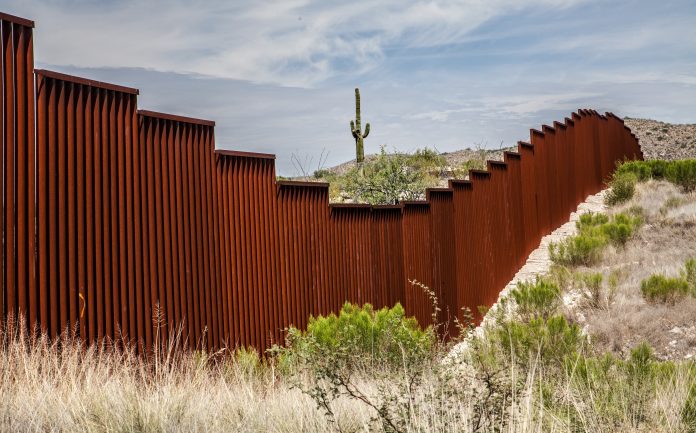
President Trump’s recent directive granting military control over a section of the U.S.-Mexico border raises significant questions about legal boundaries and national security.
Key Takeaways
- President Trump authorized military control over the Roosevelt Reservation along the U.S.-Mexico border.
- The Department of Defense will oversee potential construction and monitoring activities.
- Critics argue the directive might violate the Posse Comitatus Act.
- Homeland Security Secretary Kristi Noem supports the military presence until the border is secured.
- The directive faces potential legal challenges questioning constitutional validity.
Military Control Authorization
President Donald Trump has enacted a directive permitting U.S. military troops to monitor a 60-foot-wide stretch of land along the U.S.-Mexico border, known as the Roosevelt Reservation. This move hands over jurisdiction to the Department of Defense, allowing for new defensive measures in the area.
The plan includes bolstering border barriers and deploying advanced detection equipment. The focus spans California, Arizona, and New Mexico. U.S. troops now have the authority to detain migrants trespassing on what is considered military property.
It’s an invasion. Make the border one permanent long military base.
Fence it. Fortify it. Monitor and patrol it. Conduct trainings on it.
Let all branches have a portion for their use. https://t.co/UtbaXMmiQC
— Christian Ziegler 🇺🇸 (@ChrisMZiegler) April 12, 2025
Legal Concerns and Criticism
The President’s memorandum, issued last Friday, has sparked legal debates. Critics, including Rep. Ro Khanna, assert that using military forces in this manner breaches the Posse Comitatus Act, which limits military involvement in domestic law enforcement. Khanna highlights, “It’s a longstanding law that you can’t use the military for domestic enforcement. It’s a violation of the Constitution.”
Homeland Security Secretary Kristi Noem vowed that military presence would endure until the border is decidedly secure, stating, “We’ll keep them there until that border is completely secure, and we see all-time record lows of encounters.”
🇺🇸 TRUMP: WE NOW HAVE THE BEST BORDER WE’VE EVER HAD
"You know the expression—just needed a new president.
We have now the best, the best border we’ve ever had."
Source: RT https://t.co/uFZW7FlaRA pic.twitter.com/ByEEsCqkBz
— Mario Nawfal (@MarioNawfal) April 12, 2025
Implications for Border Security
This directive aligns with President Trump’s broader immigration enforcement strategy. The memorandum outlines roles for several Secretaries, including Defense and Homeland Security, to manage military operations on federal lands, excluding Federal Indian Reservations.
According to Trump, “Our southern border is under attack from a variety of threats. The complexity of the current situation requires that our military take a more direct role in securing our southern border than in the recent past.”
The action taken by the Trump administration signals a strong stance in utilizing military resources to enhance national security, though it raises critical discussions about its legality and long-term implications. Despite the opposition, though, Trump’s supporters and advocates remain firmly in his camp.
Stay tuned for future updates.




